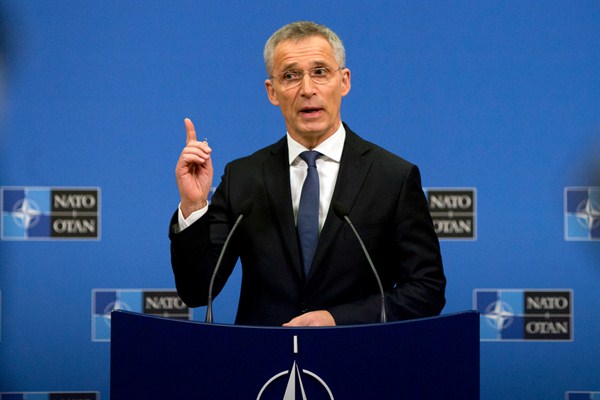NATO foreign ministers meet in Washington this week to mark the 70th anniversary of the founding of the alliance. There is much to commemorate and reflect on. But this anniversary also provides a unique opportunity to look ahead and consider what lies in store for the alliance, including questions about the long-term coherence of trans-Atlantic security ties and the current deliberations about a more autonomous European defense.
Recent open letters on the future of the European project by French President Emmanuel Macron and the leader of the German Christian Democratic Union party, Annegret Kramp-Karrenbauer, brought new impetus to ongoing discussions about European security. Both leaders advocated for bold new solutions, with Macron calling for a new European collective defense treaty and the creation of a European Security Council to include the post-Brexit United Kingdom. Kramp-Karrenbauer mentioned building a common European aircraft carrier as a symbolic project that would highlight support for European defense.
Yet in what came as a surprise for anyone who has followed the European security debate for the past three years, neither of the two mentioned Europe’s “strategic autonomy.” Since 2016, that phrase has become something of a buzzword in Europe. It often causes confusion and in some places, including Brussels and Washington, even alarm. This is because the concept is still far from being clearly defined or commonly understood. Its roots are linked to the June 2016 decision by the European Union to adopt a Global Strategy that formally called for strategic autonomy, described as Europe’s ability to pursue its own interests without being constrained by other states.

